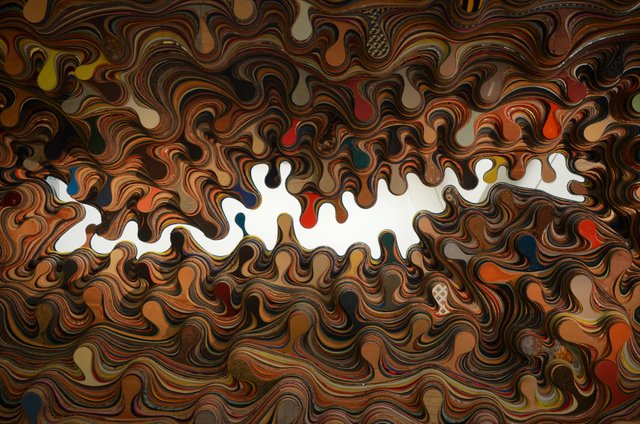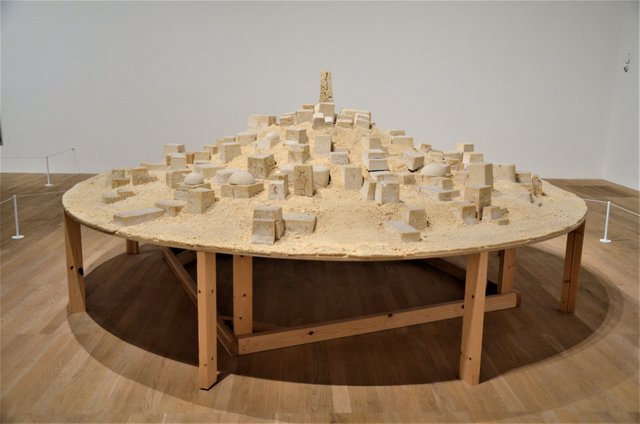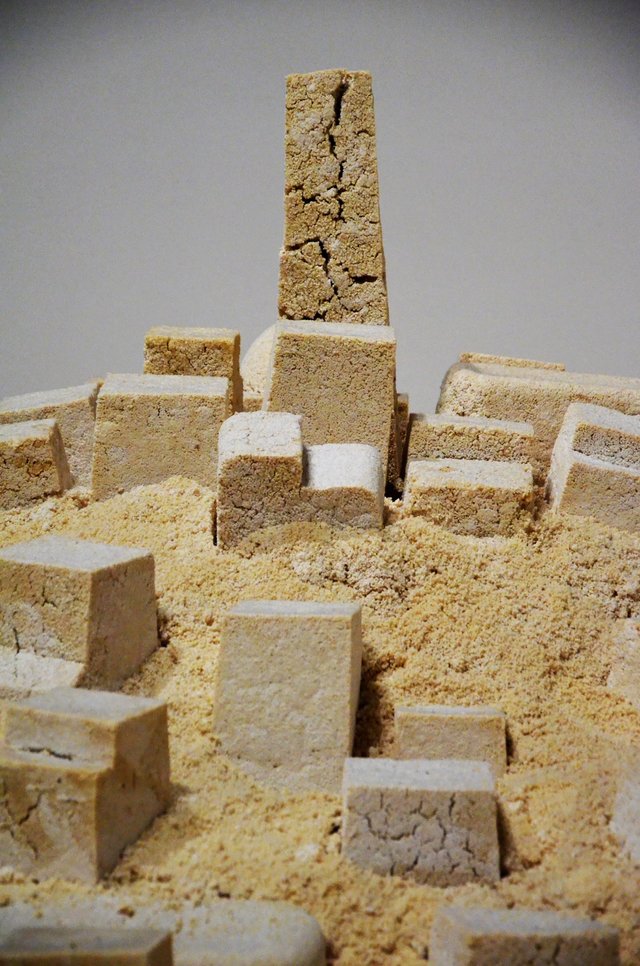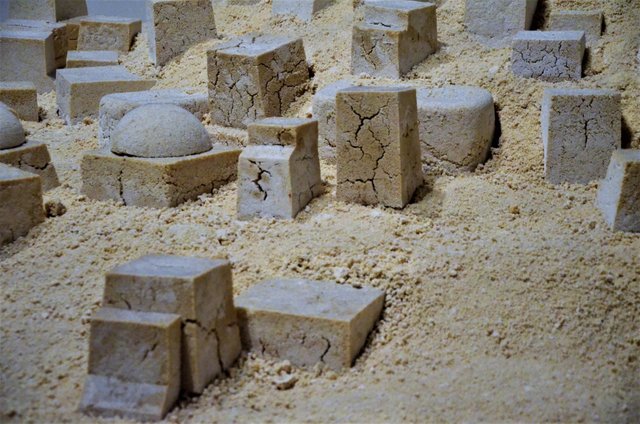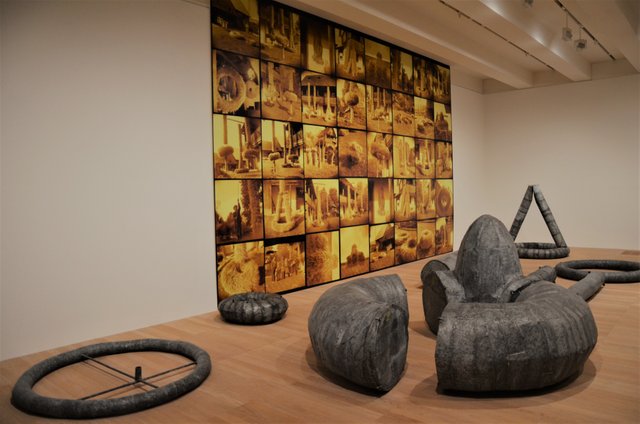On art as waste
It happened to me in a museum – to think about waste of materials, instead of the meaning incorporated in the work of art. Should it be something else than food, I may not have reacted that way, connecting art with waste.
But in front of me, a few hundreds kilos of couscous were forming a city, on a table or something – and I couldn’t think of anything else but the world’s hunger, the people starving and the waste, yes, the waste on that table.
A complete town, with houses, domes and other type of building leading you to think about Northern Africa or even some Asian countries, about the desert and the scarcity of resources. The houses were cracked in various ways, as the couscous dried out and I even got the chance to explain my son how a dome would not crack the same as a square building, should an earthquake happened.
And then, hall after hall, museum after museum, after that initial thought, I assessed what I was seeing via this ‚waste’ issue: large canvases, almost empty, lots of material stacked in various shapes, thousands of barrels painted red and pink, placed in a lake, as a pyramid. I was becoming the obtuse accountant, unable to see the forest because busy counting trees.
I found myself half a day later, recalling all the waste fiction films are generating and all the feelings I had when characters were fighting with the cake, instead of eating it, going through perfectly good windows, smashing cars, buses, planes, burning down houses – or even the facades, it doesn’t matter if that’s a house or just a dozen trees turned into lumber, then turned in a facade of a house that is being burnt artistically in a studio or ”in location”.
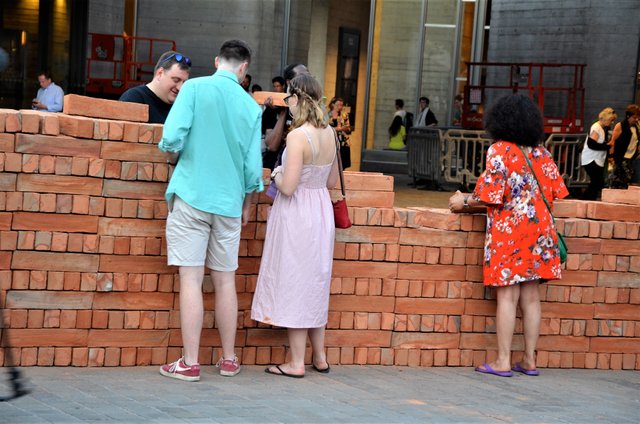 !
!
But while I was doing this painful overview of all destruction I ever witnessed in the name of art, I realized I may not be the only one. Maybe it’s the fact that I lived in poverty and in need of many things when I was little – or maybe not. Maybe it is something else, a bigger thing or a bigger threat, just insinuating into my everyday process of art digesting.
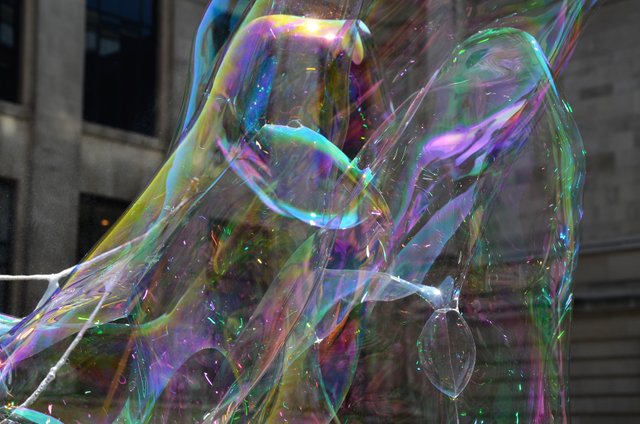
After all, who is to say what is the worthiest of causes – should we start rationalizing resources already? Is the hunger of the belly more important than the hunger for meaning? Should we only use the resources of our planet for our primary needs? Are we at that point yet? Do you hear the word, ‚the end’, whispering through all the ads, all the Hollywood productions, all the installations and performances? Cause I am, and I don’t know if it’s just me.
